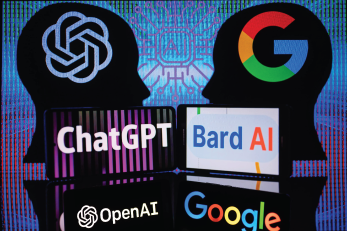The Unstoppable March of AI
Schmidt began by acknowledging the transformative potential of AI, describing it as “the defining technology of our era.” He highlighted how AI is already revolutionizing industries ranging from healthcare to logistics, with profound implications for the global economy. However, Schmidt also warned that society is still unprepared for the disruptions AI could bring.
“We’re on the brink of capabilities we don’t fully understand yet,” Schmidt remarked. “The question isn’t whether AI will change the world, but how we guide it to do so responsibly.”
When to “Pull the Plug”
A central theme of the interview was the ethical dilemma of determining when an AI system becomes too dangerous or uncontrollable. Schmidt emphasized the need for robust governance frameworks and “kill switches” for AI systems that deviate from their intended purposes.
“There has to be a clear line,” he stated. “If an AI system begins to act in ways that harm humanity or undermine our values, we need mechanisms in place to shut it down—no exceptions.”
Schmidt proposed that such decisions should not be left to individual corporations or governments alone but should involve a coalition of stakeholders, including technologists, ethicists, and policymakers. He called for the creation of international agreements akin to those governing nuclear weapons to ensure AI is developed and deployed responsibly.
The China Factor
Turning to geopolitics, Schmidt expressed concern over China’s rapid advancements in AI and the implications for global competition. He noted that while collaboration between nations could yield significant benefits, the current geopolitical climate makes such cooperation challenging.
“China is not just catching up; in some areas, they’re already ahead,” Schmidt observed. “This isn’t just a race for technological superiority—it’s a competition for values.”
Schmidt urged Western nations to invest more heavily in AI research and to establish ethical guidelines that reflect democratic principles. “If we don’t lead the way in responsible AI, we risk ceding not just technological ground but moral authority,” he warned.
Coping with the New Reality
Schmidt concluded the interview with advice for individuals and organizations navigating the new AI-driven landscape. He emphasized the importance of education and adaptability, urging people to acquire skills that are complementary to AI rather than easily replaceable by it.
“The future will reward those who understand how to work with AI, not against it,” he said. “We have to prepare for a world where human-AI collaboration becomes the norm.”
Final Thoughts
As one of the most influential figures in technology, Eric Schmidt’s insights serve as both a call to action and a cautionary tale. His interview with Noema Magazine underscores the urgency of addressing the ethical and geopolitical challenges posed by AI while embracing its potential to improve lives.
“AI is a tool, not a destiny,” Schmidt concluded. “What we do with it is entirely up to us.”
This conversation highlights the complex interplay between innovation, ethics, and global politics in shaping the future of AI. As Schmidt’s words make clear, the decisions made today will resonate for generations to come.


